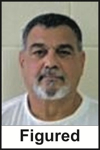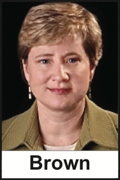Rascals case in brief
In the beginning, in 1989, more than 90 children at the Little Rascals Day Care Center in Edenton, North Carolina, accused a total of 20 adults with 429 instances of sexual abuse over a three-year period. It may have all begun with one parent’s complaint about punishment given her child.
Among the alleged perpetrators: the sheriff and mayor. But prosecutors would charge only Robin Byrum, Darlene Harris, Elizabeth “Betsy” Kelly, Robert “Bob” Kelly, Willard Scott Privott, Shelley Stone and Dawn Wilson – the Edenton 7.
Along with sodomy and beatings, allegations included a baby killed with a handgun, a child being hung upside down from a tree and being set on fire and countless other fantastic incidents involving spaceships, hot air balloons, pirate ships and trained sharks.
By the time prosecutors dropped the last charges in 1997, Little Rascals had become North Carolina’s longest and most costly criminal trial. Prosecutors kept defendants jailed in hopes at least one would turn against their supposed co-conspirators. Remarkably, none did. Another shameful record: Five defendants had to wait longer to face their accusers in court than anyone else in North Carolina history.
Between 1991 and 1997, Ofra Bikel produced three extraordinary episodes on the Little Rascals case for the PBS series “Frontline.” Although “Innocence Lost” did not deter prosecutors, it exposed their tactics and fostered nationwide skepticism and dismay.
With each passing year, the absurdity of the Little Rascals charges has become more obvious. But no admission of error has ever come from prosecutors, police, interviewers or parents. This site is devoted to the issues raised by this case.
On Facebook
Click for earlier Facebook posts archived on this site
Click to go to
Today’s random selection from the Little Rascals Day Care archives….
Click for earlier Facebook posts archived on this site
Click to go to
Today’s random selection from the Little Rascals Day Care archives….
Maybe those day-care crimes just never happened?

Lee
Jan. 22, 2018
“Sex offenders have a relatively low rate of committing the same sex crime after being released from prison. Yet policymakers often base policies on rearrest rates or the fear that sex offenders are more likely than other convicted criminals to commit the same crime after release….”
– From “Justice Alito’s misleading claim about sex offender rearrests” by Michelle Ye Hee Lee in the Washington Post (June 21, 2017)
As far as I’ve been able to tell, not a single one of the defendants in the Little Rascals, McMartin, Fells Acres, Wee Care, etc., cases has been accused of later sexual offenses – or had been accused of earlier offenses. How could the serial perpetrators of such outrageous crimes possibly have avoided recidivism for a quarter-century?
![]()
Other victims of the ‘decade of moral panic’
Oct. 24, 2011
It’s almost obscene to consider the Edenton Seven as lucky, but at least they eventually went free.
Mark Montgomery, the Durham appellate lawyer who represented Bob Kelly, cites two clients still in prison after being convicted of bizarre sexual abuse during the decade of moral panic, 1984-94.
“Junior Chandler was a driver for a (Madison County) day care. The prosecutor (the same who prosecuted Bob Kelly) alleged that Junior would drive off his route to a park by a river, strip the children of their clothes, troop them down to the river, put them in a rowboat, commit various sexual acts, put them back on the bus and take them home.
Based almost exclusively on hearsay and expert ‘vouching,’ Junior was convicted in 1987, and sentenced to two life sentences.
 “Pat Figured was supposed to have driven from North Raleigh to Smithfield over his lunch hour to stick a screwdriver into the anal openings of his girlfriend’s two children. (UNC Chapel Hill) psychologist Mark Everson testified that the children ‘had been abused by Mr. Pat Figured.’ Pat was convicted in 1993 and sentenced to life in prison.”
“Pat Figured was supposed to have driven from North Raleigh to Smithfield over his lunch hour to stick a screwdriver into the anal openings of his girlfriend’s two children. (UNC Chapel Hill) psychologist Mark Everson testified that the children ‘had been abused by Mr. Pat Figured.’ Pat was convicted in 1993 and sentenced to life in prison.”
Here is the North Carolina Supreme Court’s 2010 decision that kept Andrew Chandler Jr. a/k/a Junior Chandler in prison.
And here is a thorough history of Pat Figured’s case.
The fate of Chandler and Figured is surely appalling. However, Montgomery adds, “For each defendant who went to trial and was convicted of sexual abuse, dozens more pled guilty to a lesser charge in order to avoid trial for crimes that are difficult to defend against and carry draconian penalties.”
Betsy Kelly barred from reunion (but still got T-shirt!)
 June 28, 2015
June 28, 2015
“Today in Edenton members of John A. Holmes High School’s Class of ’73 will walk across a stage in caps and gowns, receive diplomas and turn tassels on their mortar boards – 20 years late.
“Their graduation ceremony was cancelled abruptly in 1973. A decision not to renew the contract of a black band leader had caused racial unrest, and school officials feared a disruption…. Diplomas were mailed to the 142 graduates….
“One member who doesn’t plan to attend is Elizabeth Twiddy Kelly…. A condition of her ($400,000) bond prohibits her from going to her hometown.
“ ‘There are a lot of them I would love to just touch base with, but that will have to happen another year,’ Mrs. Kelly said.
“The class committee plans to send her a class T-shirt and a letter.”
– From “Class of ’73” by the Associated Press (June 12, 1993)
Seven months later Betsy Kelly pleaded no contest to charges of child sex abuse, while maintaining her innocence, and accepted a sentence of seven years in prison. She was paroled in November 1994.
A pediatrician looks back at ‘ritual abuse’
 Feb. 20, 2012
Feb. 20, 2012
Cynthia Brown, medical director of the Mountain Child Medical Evaluation Program at Mission Children’s Hospital in Asheville, was among the first pediatricians credentialed in the subspecialty of child abuse. I asked her to summarize current medical opinion on ritual-abuse day-care cases. Here are excerpts of her response:
“One criticism common to the day-care cases in the ’80s was the inadequate interviewing process used for those children. Some interviewers reportedly made assumptions that abuse had occurred and used leading questions. As a result of these cases, major changes have been made in interviewing protocols. Interviewers go through extensive training and are expected to participate in peer review to assure they are using the protocols correctly.
“In our clinic we meet with the investigators (DSS and law enforcement) and review the child’s initial disclosure….
“We discuss alternative hypotheses….: Could the child have witnessed adult sexual activity accidentally, or through videos or computers? Could the child have been coached? Has the child been inadvertently contaminated by questions asked by a panicked parent?….
“The interview is videorecorded for review by the investigators. It also allows us to evaluate the
caliber of the disclosure and the questioning….
“Several years ago, I spoke with someone involved in one of the day-care cases who now believes there was a kernel of truth in the allegation but that it was obscured by contamination and leading interviews.
“One last thing: The FBI has looked into cases where ritualistic satanic abuse was alleged (not all were in day cares) and has never been able to validate these claims.”











0 CommentsComment on Facebook